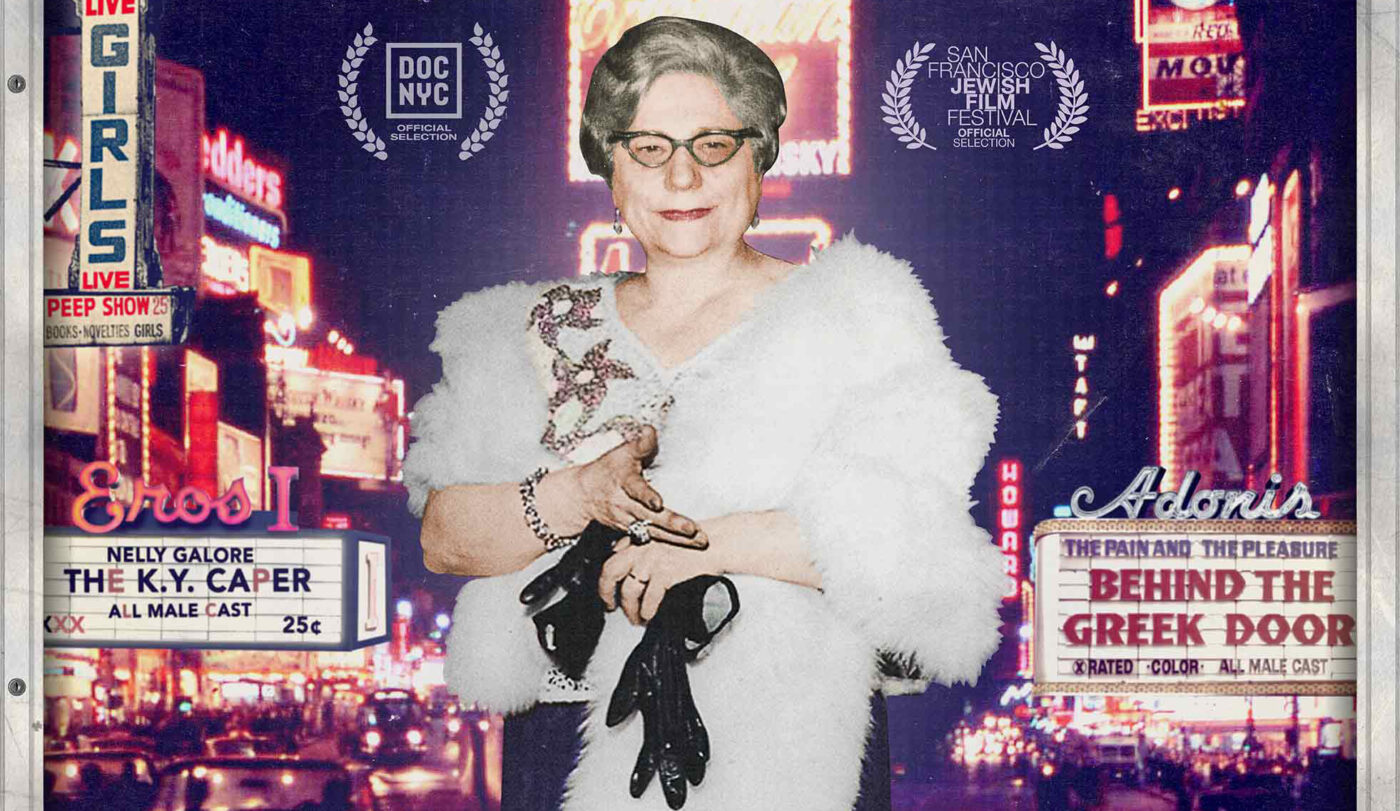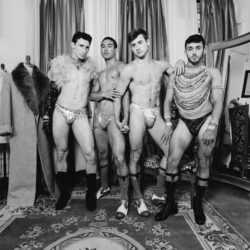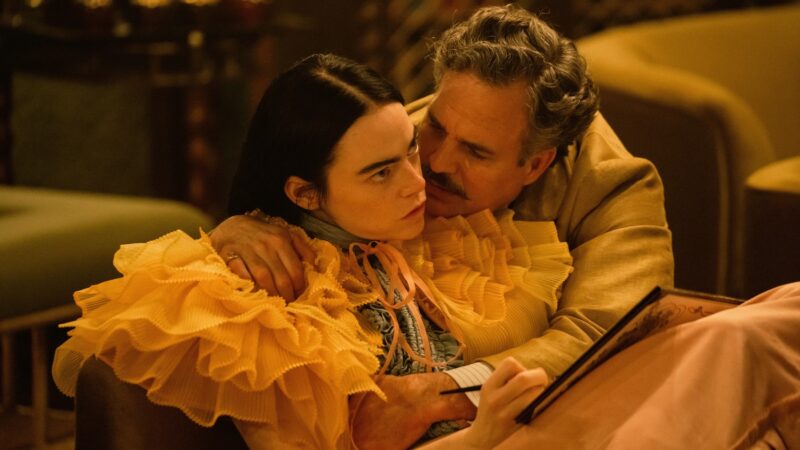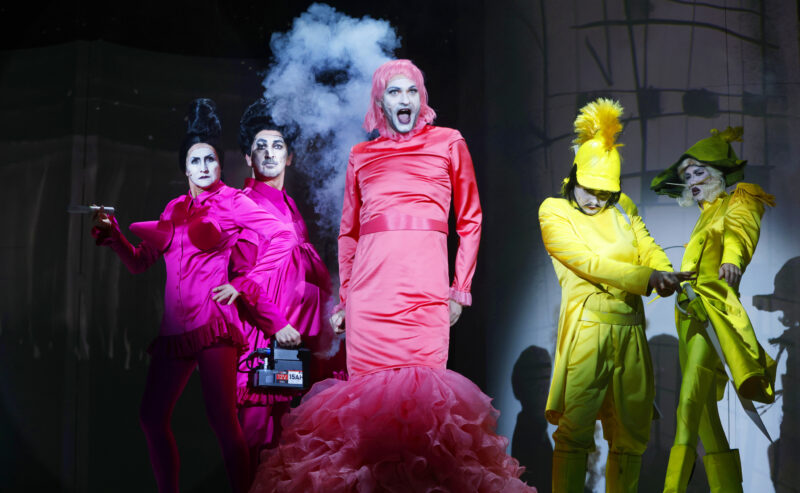Known as the Queen of the Deuce, Chelly Wilson made a name for herself as one of the leading figures in the evolution of New York’s adult film industry throughout the 1970s. Her story—one of resilience, determination, and a refusal to conform—is beautifully captured in the documentary Queen of the Deuce, released this past May 23 and available on Prime Video. As her story unfolds, we are introduced to a woman of contractions, full of boundless love and unwavering stubbornness. Recently, we had the privilege of speaking with the film’s director, Valerie Kontakos, and Chelly’s daughter, Bondi Wilson Walters, who offered intimate insights into Chelly’s extraordinary life.
Chelly Wilson’s story is as unique as it is captivating. Born in Greece, she escaped the horrors of the Holocaust to find sanctuary in America, where she built a porn cinema empire in “The Deuce.” Chelly was a Jewish grandma who celebrated Christmas, married men but was openly gay, and of course, ran a hugely successful adult film business. When asked what inspired her to tell Chelly’s story now, Valerie Kontakos, who spearheaded the film, didn’t hesitate. “Everything about her,” she said. “She just had such a fascinating life. Her experiences and accomplishments could have filled several lifetimes. I was just fascinated with her—what she had achieved and how she was as a person. I wanted to make this film to make sure other people found out about her because there was just so much there to share.”
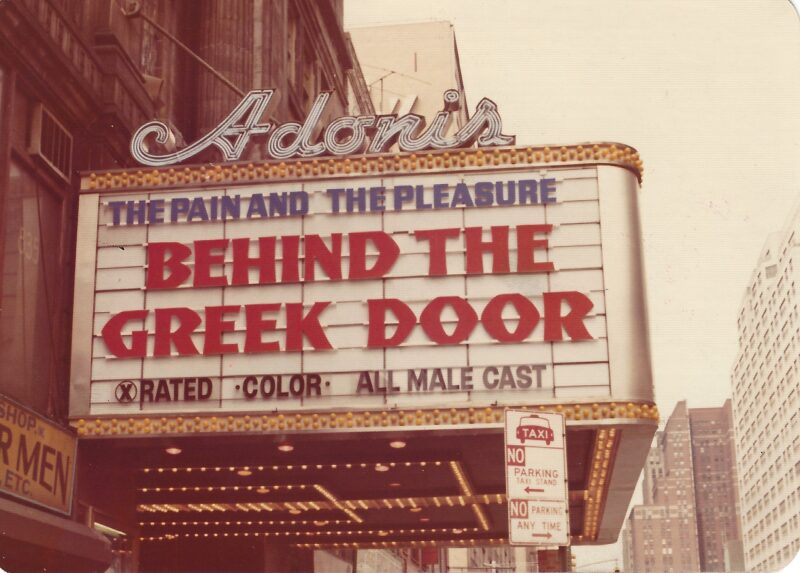
Adonis Marquee. Courtesy of the Wison Family.
Chelly’s approach to family was as unconventional as her business. As portrayed in the film, Chelly seems to have created a different world for her family, perhaps because she was unsatisfied with the world as it was. In so doing she seems to have broken away from traditional ideas of the nuclear family and somehow expanded what family means. It is clear that she created an inclusive, non-judgmental environment that deeply influenced Bondi and those around her. “The main thing is that family is very inclusive,” Bondi explained. “My mother made no judgments about people or other families, and that inclusiveness is something we have in our family.” Valerie echoed this sentiment, noting that Chelly’s philosophy was grounded in survival and acceptance. “Just start from what you can do, which is to accept other people and respect them, and hopefully that will spread,” Valerie said.
Both Bondi and Valorie shared fond memories of Chelly. Valorie spoke of a time when Chelly told her mother to leave her father, offering to take Valorie’s mother into her home. “My mother turned around and said to me, ‘Are you kidding me? Go stay with Chelly? Her girlfriends will just eat me alive!’” Laughing, Valorie explained, “My mother was pretty at the time. I’m sorry to say it but Chelly’s girlfriends were not that…you know. Hands down, my mother was better.” Bondi, who grew up immersed in her mother’s world, recalled a rare moment of quiet amidst the chaos—coloring with Chelly as a child. “It wasn’t something she did with me on a regular basis. It was probably a one-time situation, but I was amazed at how well she colored.” Chelly was of course, as Bondi recalled, coloring with a cigarette in hand. “But that experience was so out of the ordinary for her,” said Bondi, “that I do remember it.” According to Bondi and Valorie, Chelly also had an intoxicating sense of humor. Bondi recounted a moment in a restaurant when an elderly man slowly passed them with a walker, and Chelly joked, “Look at him. He forgot to die!”
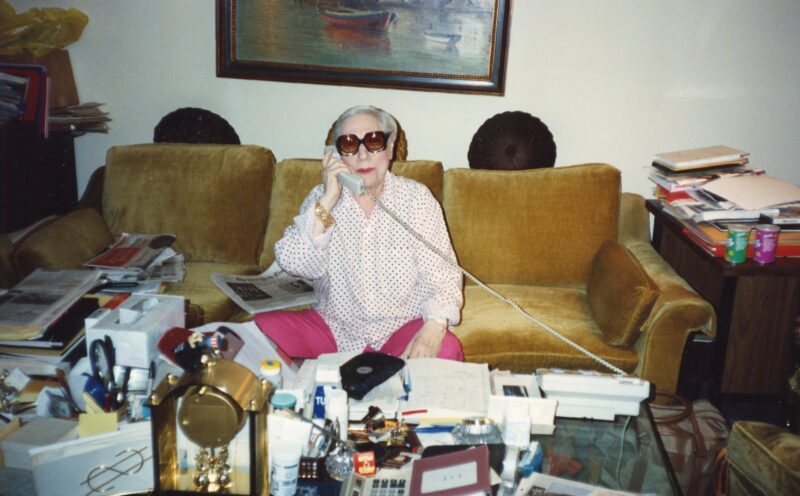
Chelly doing business. Courtesy of the Wilson Family.
Both Valorie and Bondi hope the documentary leaves viewers with a deeper understanding of Chelly’s complexity and a greater sense of acceptance and inclusiveness. “Don’t ever take things at face value. There’s a lot more behind the surface. Don’t judge things. Don’t judge people. Don’t judge situations,” Bondi advises. Valorie adds, “And just be more considerate and accepting of others. Simple things. Nothing too grand. I hope the film shows that you don’t have to start big.”
“Queen of the Deuce” successfully captures the essence of a woman who was unflinchingly herself in a world that often demanded conformity. “She was who she was. She didn’t ever make excuses about herself or hide herself. She was proud of who she was. She felt good about who she was,” Bondi shared. Chelly defied societal norms, created inclusive spaces, and approached life with a unique blend of pragmatism and radicalism. As we concluded our discussion, Bondi asked me what I liked most about the film. My answer was simple: seeing Chelly’s certainty with every step she took, even as she stepped outside of the norm. For all her contradictions, Chelly Wilson was clearly a woman who knew what she wanted.
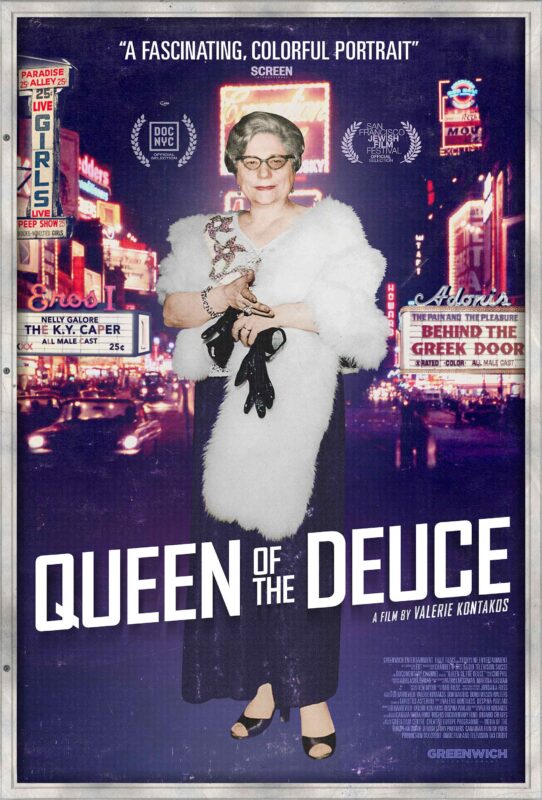
‘Queen of the Deuce’

